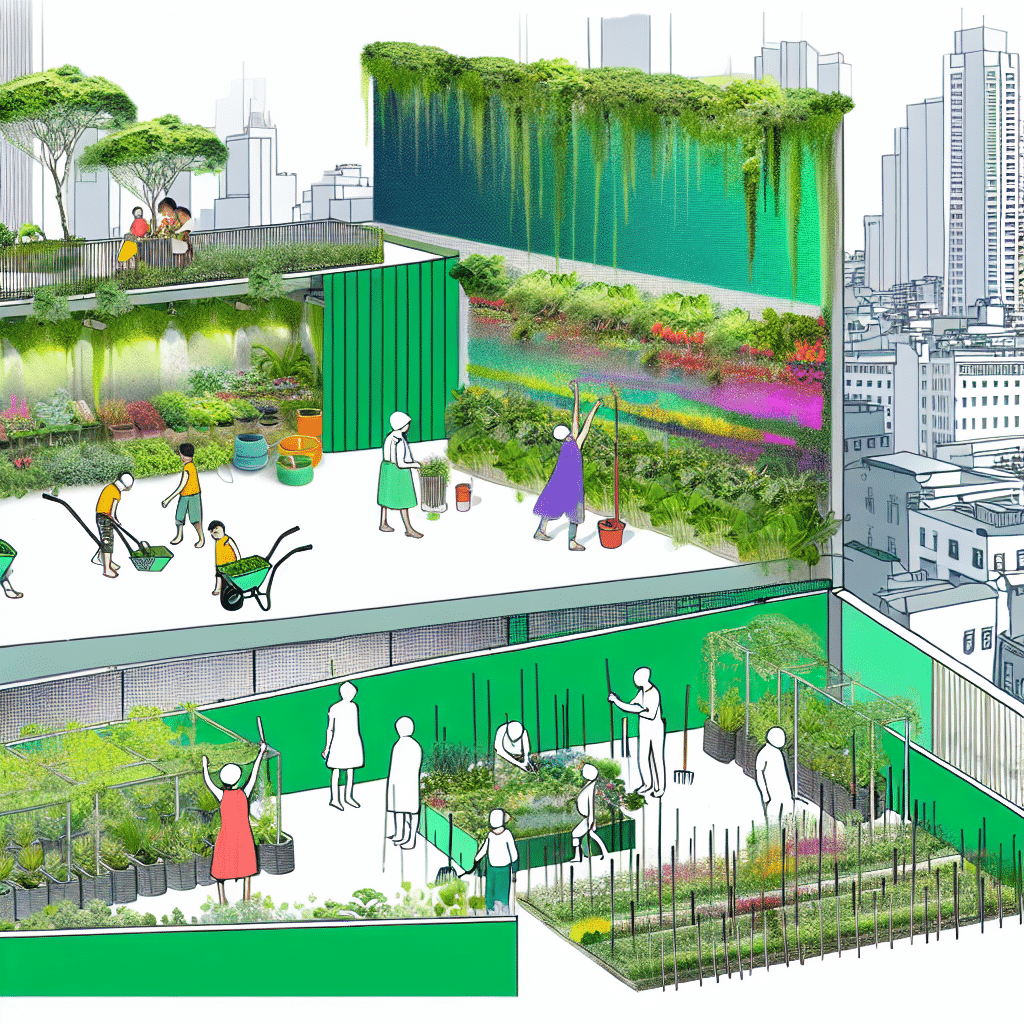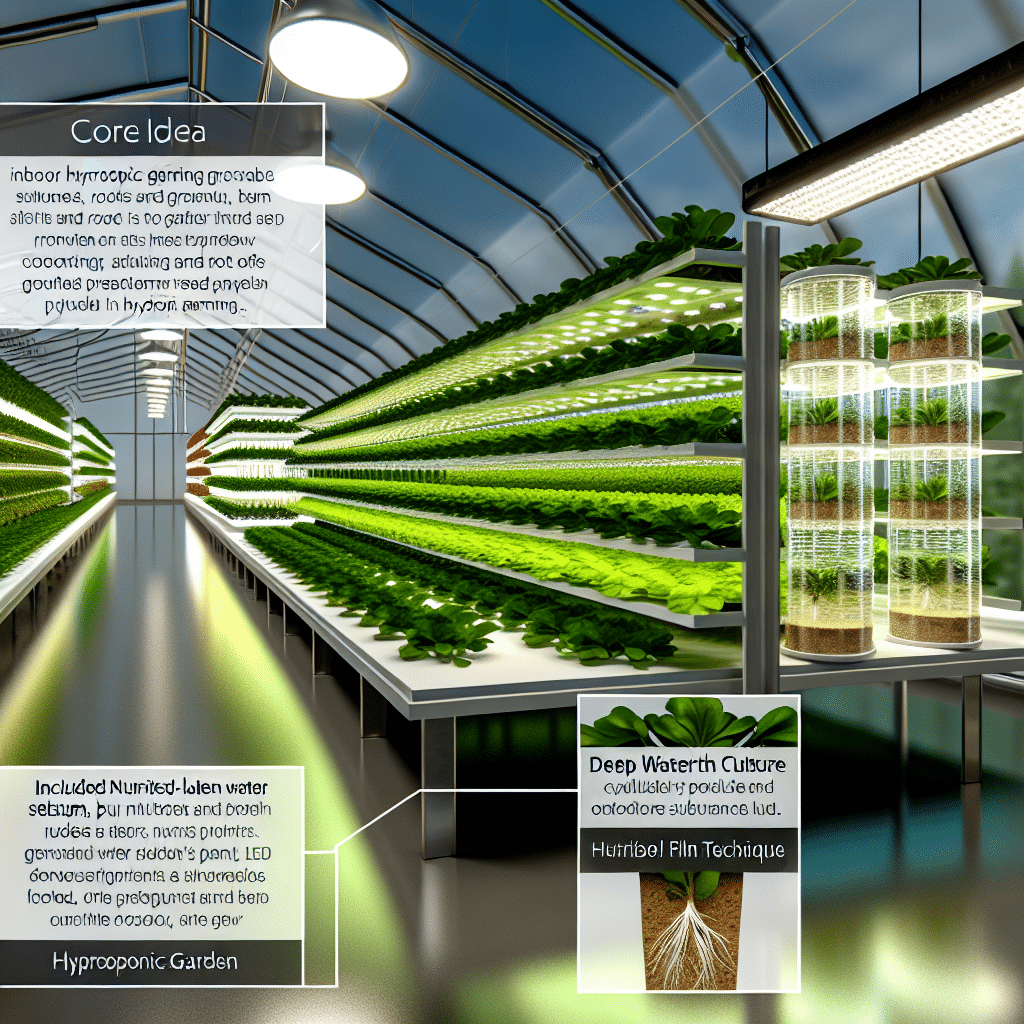In a world where urbanization is increasing, the idea of lush green spaces within cities might seem like a distant dream. However, urban gardening is slowly but surely making that dream a reality. Urban gardening is not just a trend; it is a movement that brings communities together, promotes sustainability, and adds beauty to the concrete jungle. In this article, we will delve into the concept of urban gardening and explore its benefits, challenges, and practical tips for beginners.
What Exactly is Urban Gardening?
Urban gardening refers to the practice of cultivating plants in an urban environment. This can take various forms, from small balcony gardens and rooftop gardens to community gardens and vertical gardens. The primary aim of urban gardening is to utilize available space efficiently to grow plants, whether it’s for aesthetic purposes, food production, or environmental benefits.
Why Should You Consider Urban Gardening?
Urban gardening offers a multitude of benefits that go beyond just having a pretty garden. Here are some compelling reasons to start your urban gardening journey:
Boosts Physical and Mental Health
Gardening is a form of physical exercise that can help reduce stress, improve mood, and increase overall well-being. The act of tending to plants provides a sense of purpose and accomplishment, which can be particularly beneficial in the bustling urban lifestyle.
Promotes Sustainable Living
Urban gardening contributes to environmental sustainability. It helps reduce the carbon footprint by lowering the need for transportation of food. Plants also improve air quality by absorbing pollutants and releasing oxygen. Additionally, composting organic waste from your garden reduces landfill waste, further benefiting the environment.
Strengthens Community Bonds
Community gardens are a vital aspect of urban gardening. They offer a shared space for neighbors to come together, fostering a sense of community and collaboration. These gardens can also serve as educational platforms, teaching children and adults alike about horticulture, nutrition, and sustainable practices.
Provides Fresh, Organic Produce
One of the most rewarding aspects of urban gardening is the ability to grow your own food. This ensures that you have access to fresh, organic produce, free from pesticides and harmful chemicals. It also reduces your dependency on grocery stores, saving money in the long run.
Challenges of Urban Gardening: How to Overcome Them?
While the benefits are plenty, urban gardening does come with its set of challenges. Here are some common obstacles and tips on how to overcome them:
Limited Space
Urban environments often lack large open spaces for gardening. However, with a bit of creativity, you can make the most of even the smallest areas. Vertical gardening, container gardening, and hanging gardens are excellent ways to maximize space.
Poor Soil Quality
Urban soil can be contaminated with heavy metals and other pollutants. Start by testing your soil to understand its composition. You can improve soil quality by adding organic matter like compost or using raised beds with high-quality soil.
Water Management
Watering can be a challenge, especially in areas with water restrictions. Implementing drip irrigation systems, using rain barrels to collect rainwater, and choosing drought-resistant plants are effective ways to manage water efficiently.
Pest Control
Urban gardens can attract a variety of pests. Opt for natural pest control methods such as introducing beneficial insects, using organic pesticides, or planting pest-resistant varieties.
Getting Started: Practical Tips for Urban Gardening Beginners
If you’re new to urban gardening, here are some practical steps to help you get started:
Assess Your Space
Evaluate the available space for your garden. Whether it’s a small balcony, a rooftop, or a windowsill, understanding your space will help you plan your garden effectively.
Choose the Right Plants
Select plants that are suitable for your specific environment. Consider factors like sunlight, wind exposure, and climate. Herbs, leafy greens, and dwarf varieties of vegetables are great options for beginners.
Invest in Quality Soil and Containers
Invest in good quality soil and containers to ensure healthy plant growth. Make sure your containers have proper drainage to prevent waterlogging.
Start Small
It’s easy to become overwhelmed with the plethora of options available. Start with a few plants and gradually expand your garden as you gain more experience and confidence.
Join a Community
Joining a local gardening group or community garden can provide you with valuable support and resources. You can share tips, exchange plants, and learn from experienced gardeners.
Conclusion: Embrace the Green Revolution
Urban gardening is much more than a hobby; it is a lifestyle choice that can significantly impact your well-being, environment, and community. By transforming unused urban spaces into green havens, we can create healthier, more sustainable cities. So, why wait? Embrace the green revolution of urban gardening and watch as it transforms not just your surroundings, but your life.




